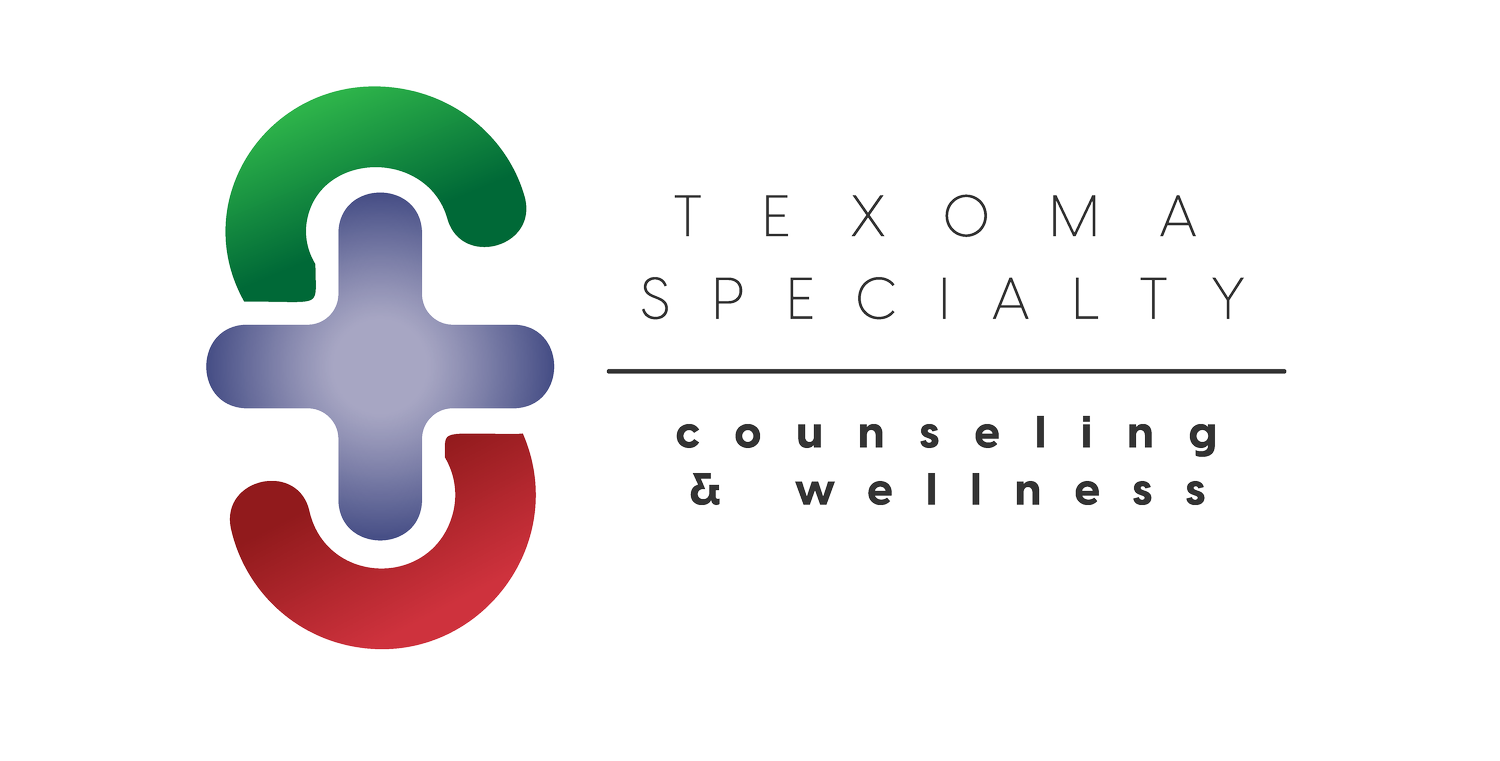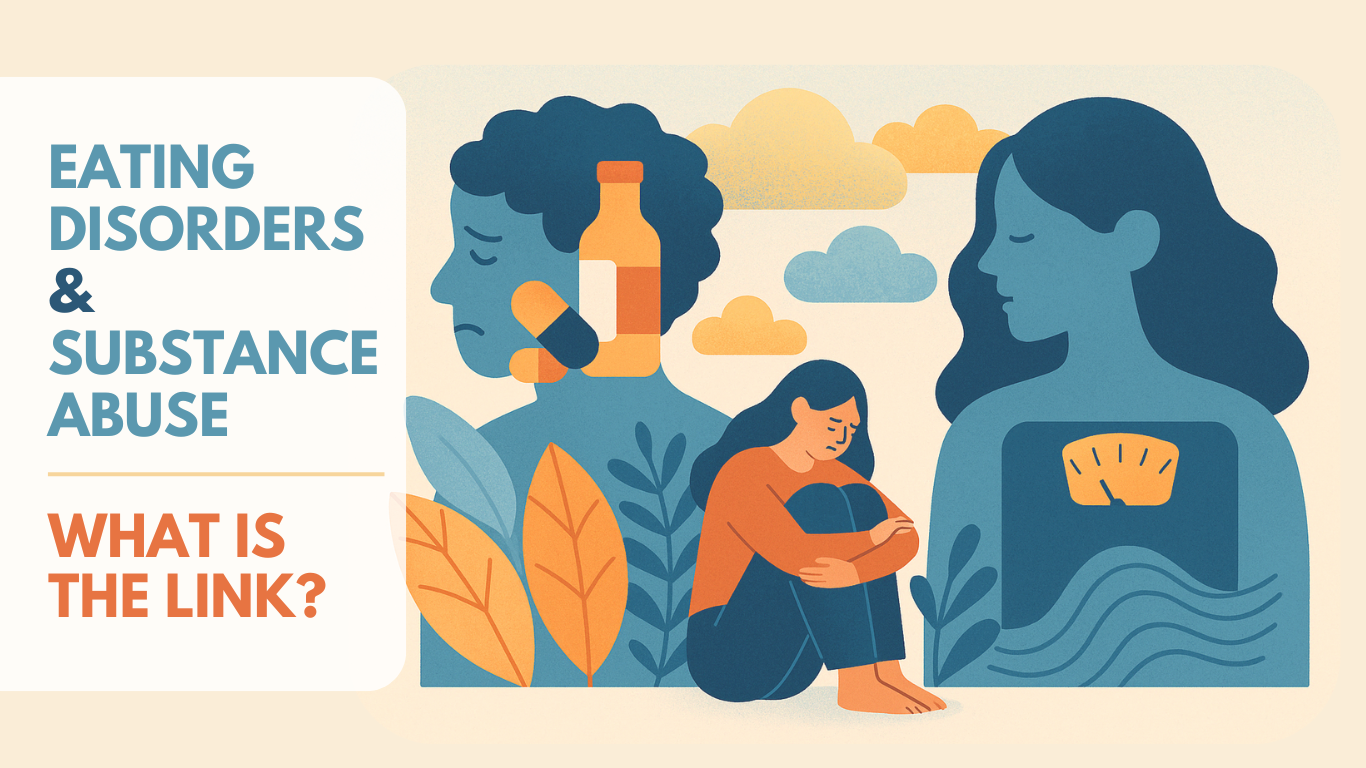The Overlap Between Eating Disorders and Substance Abuse
Eating Disorders and Addiction
📊 Where’s the Overlap?
There is notable overlap between eating disorders and substance abuse. 27% of people diagnosed with anorexia nervosa experience a substance use disorder in their lifetime, and 25% of people diagnosed with binge-eating disorder experience a substance use disorder in their lifetime (Barbarich-Marsteller et al., 2015; Schreiber et al., 2013). Additionally, certain substances can suppress appetite, which can support eating disorder behaviors (Brown, 2024).
🔁 Similarities Between the Two
Eating disorders and substance abuse both typically begin to form in adolescence (Barbarich-Marsteller et al., 2015). Additionally, similar circumstances can lead to eating disorders or substance abuse. Some examples would be a desire for control, past unresolved trauma, or conditions during upbringing (Brown, 2024). Pressure to lose weight from those around you during your upbringing can influence your likelihood to develop an eating disorder. Likewise, drug-use in those around you can influence your likelihood to develop a substance use disorder.
Healthcare professionals also use similar screening methods to look for eating disorders and substance use disorders. These clinicians will look for whether the patient is sacrificing relationships, hobbies, time, etc. for the sake of their eating disorder or substance abuse; an inability to stop eating disorder or substance use habits; an increase in intensity of these habits (e.g., eating more/less, exercising more, using greater doses of substances, using substances more frequently); and a continuation of these behaviors despite negative consequences to themselves and others (Brown, 2024).
Lastly, eating disorders and substance use can both be triggered by external or internal stimuli (people, places, feelings, sensations, etc.).
Quick recap… Eating disorders and substance use often:
Begin during adolescence
Are shaped by trauma, environmental factors, and upbringing
Share risk factors like a desire for control or outside pressure
Are maintained despite harmful consequences
Involve behaviors that intensify over time
🛋️ What About Treatment?
Though there are differences in treatment, for both eating disorders and substance use disorders it is important to determine the purpose of the behaviors. For example, anxiety may cause a person to restrict, over-exercise, purge, binge, or use substances. The purpose of these behaviors would be to manage the anxiety.
Once this purpose is understood, a mental health professional can help find ways to replace eating disorder behaviors and/or substance use with coping skills that are less harmful and more sustainable.
🤝 Help Is Available
Looking for a mental health professional to treat your eating disorder or substance use disorder?
May Chinn, LPC Associate (supervised by Dr. Stephanie Waitt, LPC-S, CEDS) is currently accepting new clients.
Email her HERE to get started.
📚 Sources:
Barbarich-Marsteller, N. C., Foltin, R. W., & Walsh, B. T. (2015). Does anorexia nervosa resemble an addiction? Current Drug Abuse Reviews, 4(3), 197-200. DOI: 10.2174/1874473711104030197
Brown, S. (2024, March 1). The link between eating disorders and addiction. Cumberland Heights. https://cumberlandheights.org/resources/blog/the-link-between-eating-disorders-and-addiction/
Schreiber, L. R. N., Odlaug, B. L., & Grant, J. E. (2013). The overlap between binge eating disorder and substance use disorders: Diagnosis and neurobiology. Journal of Behavioral Addictions, 2(4), 191-198. DOI: 10.1556/JBA.2.2013.015


